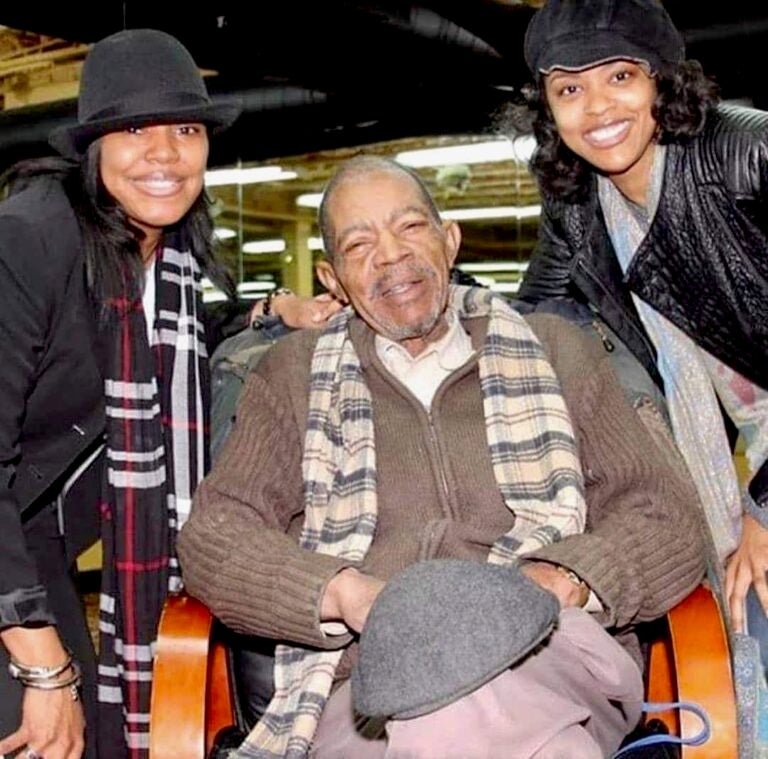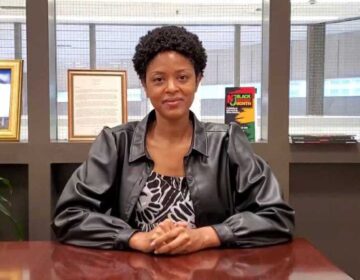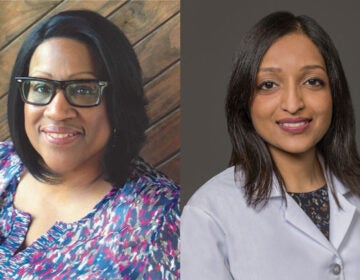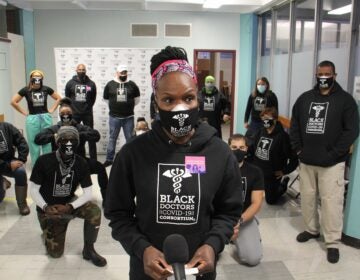Enrolling in COVID-19 vaccine trial as a Black doctor
"My dad would frequently say to me, follow the data, follow the science." N.J. doctor Chris Pernell on why she enrolled in a COVID-19 vaccine trial.
Listen 18:19
Dr. Chris Pernell (right) is shown in a family photo with her father, a scientist who died of COVID-19, and her sister-in-law. (Provided by Chris Pernell)
While the nation anxiously awaits a COVID-19 vaccine, surveys have found many Americans are wary of getting it if one were to become available soon. In particular, many Black Americans are skeptical given the history of medical scientists subjecting them to experiments without their knowledge or permission.
But New Jersey public health doctor Chris Pernell has jumped feet first into the search for a vaccine, signing up as a subject for a Phase III clinical vaccine trial at Rutgers University.
She says it’s important for Black people like her to be included in clinical trials to ensure the results reflect the general population, and because they’ve been hit the hardest by the virus. But her decision to enroll in the trial was also personal: a tribute to her scientist father who died of COVID-19.

Hear the whole story on The Why
Interview highlights
On what it’s like to be in a clinical trial for a COVID -19 vaccine
In order for someone to participate in any clinical research, any type of vaccine trial, you have to make sure you know the risks versus the benefits. It was also explained to me what types of symptoms or what types of reaction or signs or experiences I could have after participating, what to look out for. Fever, body and muscle aches, headache, runny nose, sore throat. And I understood that. It explained to me how many visits I would have across the two-year period that I was being followed. I sat with that information for a weekend and then I went in in person.
I’ve had my first shot. I’m due for my second shot in a couple of days … It felt like the flu shot, if I could be really honest. So my arm was was tender. I did have a headache for several days. Other than that, I didn’t have any other upper respiratory symptoms or anything that would suggest a respiratory illness … I have an app on my phone. In that first week, you have to complete a questionnaire through the app. You get daily phone calls and or text messages checking in with you.
On why she decided to join the clinical trial
My dad would frequently say to me: follow the data, follow the science. And as a public health physician, I believe in public health science and I know how important it is in solutions around this pandemic, which has been so destructive. It has been so destructive for black and brown communities and it has been destructive in my family personally. I lost my dad and not only did I lose my father, but my older sister, who’s a breast cancer survivor, is what we call a “long-hauler.” She’s going through a very long recovery from Coronavirus. So this was personal for me. It’s a part of me living out my father’s legacy. It’s a part of me helping to be in covenant with the community and as a part of me adding to the public health science, adding to the data to help us find a solution.
On distrust felt by many Black Americans
The distrust that we see in the Black community is valid. Trust should be earned. Trust should be demonstrated through actions that are trustworthy. And with that said, through those centuries of medical exploitation and experimentation, we have had some changes in clinical research. So based on those abuses, we now have informed consent in place … that process of making sure that anybody who participates in clinical research, whether that’s a vaccine trial or investigation of a particular drug, knows the benefits and knows the risks, that no information is withheld from the person. That person understands that this is voluntary, and if any time they want to withdraw their consent, they can do it with no repercussions. And so I believe that this current trial has followed the ethical guidelines. It is being done with scientific rigor. That’s why I participated. It is important. For any vaccine or investigational drug that is being studied, that we’re able to say that it’s generalizeable for the broader population. And the only way you can say it’s generalizeable to the broader population is if those persons participated in the clinical research.
WHYY is your source for fact-based, in-depth journalism and information. As a nonprofit organization, we rely on financial support from readers like you. Please give today.







